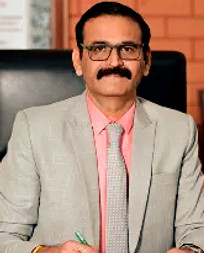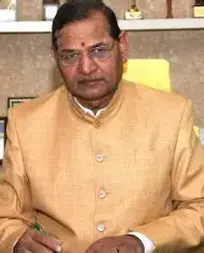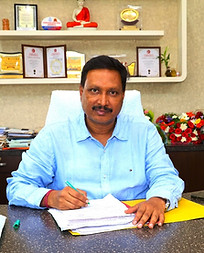

University of Mysore
&
Karnataka State Open University Mysuru
About the Conference
The 21st Political Science Teachers Conference concentrates on a critical interrogation of the dynamic interrelationships between the State, Society, Market, and the Individual. These entities constitute the foundational pillars of political inquiry and action. As the 21st century unfolds amidst technological revolutions, global realignments, and growing social unrest, political science must evolve as a discipline that not only studies power but also questions its manifestations.
Understanding the dynamic relationships between the State, Society, Market, and the Individual is central to analyzing contemporary political, economic, and social systems. These four elements interact in complex, often contradictory ways, shaping collective actions, individual lives and societal outcomes. Investigating these intersections allows us to uncover the deeper forces that structure social realities and informs more effective responses to the challenges of our time.
Society continuously reinvents the project of critical thinking through two key processes: first, by treating itself as an object of inquiry, and second, by challenging the general assumptions and exclusionary effects of the existing social order. In this context, three prominent questions emerge:
1. How should we rethink social relations and interactions today?
2. What new institutional and discursive configurations of power are emerging?
3. How can we understand the contemporary socio-cultural movements shaping polity and governance?
Interrogating society requires moving beyond surface-level observations to critically examine causes and consequences of social phenomena. This involves identifying entrenched power structures, social inequalities, and internal contradictions.
From a market perspective, interrogation yields theoretical and practical insights aligned with evolving global realities. As a core institution of political economy, the market is entangled with critical themes such as wealth generation, power, contestation, and transformation. Today's markets—both local and global—are undergoing profound changes shaped by technological revolutions, globalization, and policy shifts. However, markets are not self-contained; they operate under the regulatory influence of the state and are molded by societal needs and individual choices. In the current global order, states are simultaneously empowered and constrained by their roles in market regulation, digital governance and international trade regimes. The resurgence of trade wars, particularly among dominant powers like the US and China underscores the fragility of multilateral institutions such as the WTO and threatens the vision of a just and peaceful global order.
The corporate-driven market, enabled by state power and societal compliance, now wields immense influence over political, economic, cultural, and social systems. Both democratic and non-democratic institutions appear increasingly vulnerable to corporate interests, often at the expense of the welfare state and subaltern communities. In countries like India, marginalized populations continue to struggle for dignity, rights, and a decent quality of life—fueling growing resistance movements that challenge the status quo. Hence, interrogating political science through a market lens is not just an economic exercise it is an inquiry into the ideological, institutional, and cultural foundations that construct, regulate, and contest markets.
Ultimately, analyzing the interplay between state, society, market, and individual illuminates the web of power, governance and agency that defines modern life. Political science, with its theoretical and empirical methodologies, offers a framework to explore these relationships in pursuit of legitimacy, equity, and change. This three-day conference aims to deepen the understanding of these interactions through scholarly case studies and critical discussions by distinguished experts, contributing to the enrichment of the discipline and envisioning a more inclusive future for humanity.

Conference Objectives

1
Examine the evolving role of the state in contemporary governance
2
Explore democratization processes and social transformation
3
Analyze market forces as power structures in modern societies
Investigate individual rights in an age of rapid change
4
Promote academic collaboration and research excellence
5

Sub-Themes
1.Re-defining the State
-
State Legitimacy and Authority
-
State Capacity in Public Policy and Governance
-
State Autonomy vs Societal Influence
-
Recent Trends in Indian Federalism
-
Crypto-Capitalist and Corporate State
III. Market as a Power Structure
-
State-Market Dynamics
-
Transformation of Global Markets
-
Market Forces and Contemporary Societies
-
Cost-Benefit Analyses in Public Policy
-
Transactional vs.Transformational Leadership
-
Communitarianism and Cosmopolitanism
II. From Stratification to Democratization of Society
-
Social Inclusion and Conflict–Tribe, Caste, Class, Gender, Religion
-
Civil Society and Democratic Participation
-
Identity Politics and Cultural Shifts
-
Social Capital in Modern Communities
-
Popular Resistance Movements
IV. Individual Rights in the Age of Change
-
Digital Governance and Surveillance
-
Populism and Political Mobilization
-
Political Behavior and Public Opinion
-
Shifts in Political Culture and Civic Engagement
-
Ability and Disability
University of Mysore
Mysore University of Mysore, established in 1916, by Rajarshi Nalvadi Krishnaraja Wodeyar. It is one of the India's oldest and prestigious universities. It is known for academic excellence, cutting edge research and its inclusive educational ethos. With strong global linkages, a multilingual digital library, and a vibrant intellectual community, it continues to shape generations of students.

About Host Universities
Department of Studies in Political Science
The Department of Studies in Political Science, Established formally in 1952, the department traces its academic lineage back to 1944–45. It has consistently pioneered political scholarship rooted in Indian realities, critical of Eurocentric paradigms. The department has been instrumental in initiatives such as:
-
A trilingual Political Science glossary (Kannada-Hindi-English)
-
The Social Development Index
-
The Drushti Project for visually challenged students
-
Establishment of four major study chairs: Dr.B.R. Ambedkar, Babu Jagajivan Ram, Zakir Hussain and N. Rachaiah.
With alumni including Politicians, administrators, public intellectuals, the department stands as a vital contributor to national and international political discourse.

Department of Studies in Public Administration:
The Department of Studies in Public Administration was started as an independent entity in 2015, it offers Master and Doctoral programs with admission to train responsive, ethical administrators and scholars. It emphasizes:
-
Governance and public policy
-
Rural development and decentralization
-
National and international academic collaboration


Dr. B.R. Ambedkar Research and Extension Centre:
On the occasion of Platinum Jubilee celebration of the University of Mysore, Dr. B.R. Ambedkar Chair was constituted in 1994 and placed at Department of Studies in Political Science. In 2000 Dr. B. R. Ambedkar Research and Extension Centre was established by the University. The centre has spent 25 years fostering academic excellence, social engagement, and transformative education inspired by Dr. B. R. Ambedkar's legacy. It offers unique programs such as Masters and Doctoral Programmes, Diploma, and Certificate Courses in Ambedkar and Buddhist Studies. Today, Dr. B.R.Ambedkar Research and Extension Centre stands as a vibrant and evolving institution deeply rooted in intellectual activities that dedicates itself to advancing social justice, critical thinking and inclusive development, thus carrying forward Dr. Ambedkar's vision into the twenty-first century. Adding to the distinction of the centre, Government of Karnataka recently constituted the Constitutional Studies Chair with a Corpus fund of Rs.10 Crores. Key features :
-
Library and Digital Lab
-
Vishwajnani Auditorium
-
The Equality Sculpture Park
-
Focused research on Dalit, Women, Leadership and Empowerment
Karnataka State Open University:
Karnataka State Open University (KSOU), Mysore Institute of Correspondence Courses and Continuing Education of University of Mysore was transformed into KSOU in 1996. It was recognized by the University Grants Commission (UGC) under the Open and Distance Learning (ODL) Regulation 2017, with the vision of providing “Higher Education to Every one, Every where.” Located in the Heritage city of Mysuru, KSOU operates on a sprawling 50-acre green campus offering a wide array of Under graduate, Post graduate, Doctoral and Certificate programs across disciplines. KSOU plays a critical role in democratizing higher education, particularly for students from marginalized and non-traditional backgrounds. Through flexible, accessible, and learner-centric pedagogy, the University ensures inclusiveness, quality, and social relevance in its academic mission.

Department of Studies and Research in Political Science (KSOU):
The department has evolved into a vital hub for political studies and research with in the open learning system. It offers comprehensive programs including Certificate, Under graduate, Post graduate and Doctoral programs. Department of Political Science offers diverse learning opportunities through Open Distance Learning . The department emphasizes critical inquiry, civic responsibility, and public ethics. It aims to produce political thinkers, researchers, public servants and community leaders equipped with theoretical depth and practical insight.
Key Offerings:
-
Ph.D. in Political Science (as per UGC norms)
-
M.A. in Political Science (CBCS Pattern)
-
B.A. with Political Science as a major
-
PG Certificate in Business Law
-
Certificate in Panchayat Raj

Chief-Patrons
Patrons

Prof. N K Lokanath
Vice-Chancellor
University of Mysore

Prof. Sharanappa V. Halase
Vice-Chancellor
Karnataka State Open University Mysuru

Smt. M. K. Savitha K.A.S
Registrar
University of Mysore

Prof. S.K. Naveen Kumar
Registrar
Karnataka State Open University, Mysuru

Office Bearers
Prof. Krishna Hombal
Hon' President
Mob: 6364380910 / 9448620702
Prof. Shankarnaranappa
President
Mob:7975236335
Organising Secretary
Prof. J Somashekar
Mob:9448438284

Vice- Presidents
Dr. C.N. Manu
Dr. Parthesh.K.V
Prof. Nagarathnamma
Dr. Kaliprasad
Dr. P. Devaraj
Joint Secretary
Dr. Rajinikanth.B.T
Dr. Manjula.R
Dr. T. Deepak Kumar
Sri. Mahesh
Dr. Jayakumar
Treasurer
Dr. M. S. Yogesh

Executive Committee
Dr. M.G. Bharath Raj
Dr. Puttaraju
Dr. Anand Gowda
Dr. Mangalamurthy
Dr. K.Anuradha
Guide Lines for Paper Submission
Original full length paper:1500–2000 words.
Abstract: Mandatory for all papers.
Language: English (using Times New Roman font Size12),
Kannada (Nudi 6.0).
English: 12-15 lines abstract; Title and author details; A4 size pages; one-inch margins.
Kannada: 15-18 lines abstract; Title and author details; A4 size pages; one-inch margins.
Include: Paper/Poster title, author (s), professional affiliation, address, email and telephone number.
Submission of Abstract 25th August 2025
Last Date for Submission of full paper: 25th September 2025
Publication: Selected papers will be published in the Journal of Politics with Peer- Review .
Send your Abstract and Paper to this E-mail: ps21stconference2025mysore@gmail.com
Submission and Site Engagement overview
240
Total Registrations
250
Abstracts Recieved
220
Articles Recieved
1158
People Visited this site